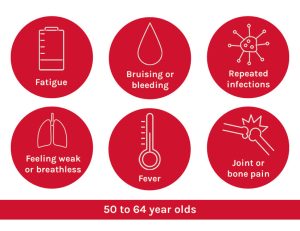What is the cause of dizziness and blurred vision?
Dizziness and blurred vision are encountered by many people in ordinary life, but do you know what should be done about dizziness and blurred vision? What are the causes of dizziness and blurred vision? Today we will introduce why people are always dizzy, and also learn how to do dizziness often and understand what causes the symptoms of allergies.
How to do dizziness and blurred eyes
Dizziness and blurred vision are likely to be caused by anemia. Such as iron deficiency anemia, hemolytic anemia, megaloblastic anemia, etc., the supply of blood in the body is seriously insufficient, resulting in lack of oxygen to the brain, which causes dizziness. The symptoms of dizziness are really close to us, such as when we wake up in the morning or after standing up suddenly, there is a feeling that we are going to faint, and sometimes it even has a considerable impact on our life. Dizziness is just a simple disease, some people also accompanied by nausea, tinnitus, pale face and other symptoms, do not think that dizziness is a minor problem, the disease has its certain incubation period, usually we are commonplace minor problems, may be eating up health day by day. This is an acute cerebral ischemia caused by cardiac arrest, paroxysmal tachycardia, paroxysmal atrial fibrillation and ventricular fibrillation, which can manifest as dizziness, blurred vision, stomach discomfort and syncope. It is also caused by our low blood pressure, such as somatic hypotension, physical hypotension, secondary hypotension, etc. The slow blood flow in the body causes distal capillary ischemia, which affects the supply of oxygen and nutrients to tissue cells.
Functional hypoglycemia can also cause dizziness, panic, weakness, tremors during fasting or exertion, sometimes convulsions, loss of consciousness, etc. Secondly, cerebral arteriosclerosis causes dizziness: the internal diameter of cerebral arteries becomes smaller and the blood flow in the brain decreases, resulting in insufficient blood and oxygen supply to the brain, causing dizziness. In addition, patients may also suffer from insomnia, tinnitus, emotional instability, forgetfulness, and numbness of the limbs from time to time.
Precautions
Black fungus has a high iron content, ranking first among all kinds of meat and vegetarian foods, and is a good blood tonic. According to a Japanese test report, black fungus has certain anti-cancer activity. Brown sugar, also known as red sugar, is richer in iron. According to Chinese medicine, black fungus can nourish the qi and brown sugar can nourish the blood. The above two ingredients of this recipe are effective for anemia of both qi and blood.
Factors that cause dizziness and blurred vision
1. Dehydration
Most of the brain is composed of water, once the body is dehydrated, the brain function will be out of order. Professor Lawrence Armstrong of the University of Connecticut says that blood viscosity increases when dehydrated, body temperature rises, and heart rate increases. Therefore, when dizziness occurs, you may want to drink a large glass of water to try.
2.swimming
Swimming can easily lead to water in the ear, and once the water has affected the inner ear balance organs, the vertigo can last for hours or even days before the water in the ear becomes completely dry. Experts point out that before and during swimming, emotional tension can lead to a drop in the amount of blood oxygen in the brain, and then vertigo can occur.
3.Migraine
Health experts say that vertigo is often a precursor to migraine attacks, which is caused by narrowing of blood vessels in the brain and reduced blood flow.
4.Drug side effects
High blood pressure drugs ace inhibitors and antidepressants such as amitriptyline can lower blood pressure and induce vertigo. British Heart Association expert Natasha? Stewart said that some heart patients taking diuretics will be dehydrated, will also produce vertigo. Sedatives suppress the central nervous system and slow down brain activity, which is also a major factor in causing vertigo.
5.Iron deficiency
Fatigue and weakness are the main symptoms of anemia. Due to the lack of iron in the body, blood red blood cells decrease, the amount of oxygen carried by hemoglobin decreases, and the amount of blood oxygen in the brain is insufficient, thus producing a sense of vertigo.
6、Full body scan
MRI scans may also cause vertigo. The balance of the human body is controlled by the inner ear, and the strong magnetic field generated by MRI scans can cause imbalance in the inner ear balance organ, which in turn can lead to vertigo.
7. Allergies
Allergens such as peanuts, cats, dust and pollen may also cause vertigo. According to experts at the Surrey Allergy Clinic in the UK, allergies can cause mucus to be produced in the sinuses and middle ear, affecting the inner ear balance organs and leading to vertigo.
8. Blood pressure and lack of oxygen
A lot of vertigo is caused by a sudden drop in blood pressure and a short time lack of oxygen to the brain. For example, getting up or getting up violently.
Dizziness may seem common, but it is not less harmful, so we should not be careless.


